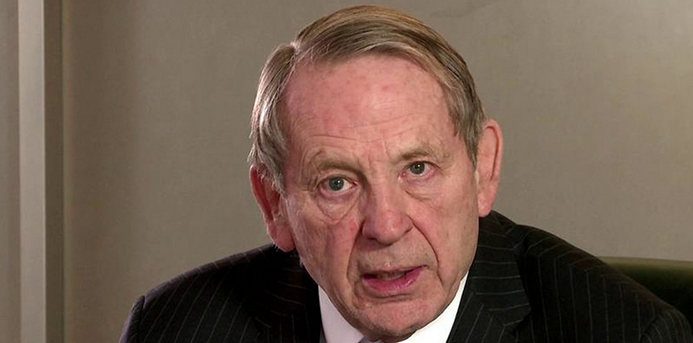You see them everywhere. Fathers pushing strollers, changing diapers in public, playing at the park and even grocery shopping with children in tow.
You see them in the carpool lines, volunteering in our schools, attending doctor’s appointments and teacher conferences, supervising homework and orchestrating music practices.
They are, in every sense of the phrase, Renaissance men. For 21st-century fathers who prioritize their kids, “parent” is an action verb, not a passive noun.
It’s been a long time coming.
“Thirty years ago, only 10 percent of all fathers of young children would be the primary caretaker for a substantial chunk of time; now it’s 60 to 70 percent,” Psychologist Jay Lebow says. “The growth has just been enormous. Research shows that when dads are more involved, children have improved self-esteem and suffer fewer academic and emotional difficulties. Fathers feel better about themselves and experience growth in empathy, connection, attachment and pleasure at providing valuable guidance.”
According to Lebow, past president of the Division of Family Psychology of the American Psychological Association and senior faculty at the Family Institute in Evanston, the future holds more of the same.
“As men experience the connection, pleasure and feelings that go with caregiving, they won’t turn back.”
Sam Skinner of Winnetka is a prime example.
The handsome, straight-talking epitome of political, legal and business success worked “24/7“ to become Secretary of Transportation and Chief of Staff for the first President Bush, directed one of the nation’s largest power companies as president of Commonwealth Edison and once ran the helm of USF Corp. as chairman and CEO.
But the story behind all that success is that Skinner rarely spent time with his first three children, now 44, 41 and 38.
“One of my biggest regrets in life is that I didn’t have more time to be with them,” he says.
Fortunately for Skinner, he has the chance to do it all over again. This time around—with his second marriage and the birth of their sons—Skinner has restructured his life to spend as much time as possible with his boys. He leaves for work after he drives them to school, coaches their baseball teams, helps with homework and attends almost every one of their weeknight and weekend events.
“I don’t think I’ll have any regrets now,” he says, thoughtfully.
North Shore dads are definitely evolving, moving away from the aloof Ward Cleaver stereotype to become 21st-century, present and participating parents. However, the trend is not limited to the North Shore. Evidence of a profound shift for fathers can also be found elsewhere in society.
Charles Whitaker, a professor at Northwestern’s Medill School of Journalism, cites diaper-changing tables in public men’s rooms as his favorite example of hands-on fathering. “I squatted over a blanket covering many a disgusting floor to change my now teenaged sons’ diapers,” he says. “Today every restroom has a diapering area, and men use them frequently.”
Schools provide even more proof of a dramatically increasing “Dad” presence. Whitaker rose from field trip chaperone to PTA president at Longfellow Elementary School in Oak Park. And during her last six years as a PTA organizer at Wilmette’s K-4 Harper School, Mindy Fauntleroy watched a trickle become a flood of fathers manning volunteer “centers” during—not after—school hours.
Winnetka resident Steve Adams is another one of those 21st-century dads.
After the birth of his son, Gerritt, and feeling that he missed the first six years of the life of his daughter, Hannah, he quit his job and dismissed the nanny.
“I thought then and I still think now that the best investment I could make was spending my time raising my children,” he says.
Originally, other fathers asked Adams, with consternation, “Why did you do it?” Now, he hears envy and admiration as they pose a question once reserved for moms: “How did you do it?”
“Raising kids is the most demanding and rewarding aspect of life,” says Adams. “Fathers need to ask themselves, are you doing your half of the work?”
One thing’s for certain. If they are sharing the work, if they are following the 21st-century example Renaissance men like Skinner and Adams embrace, there will be—without a doubt—no regrets.

